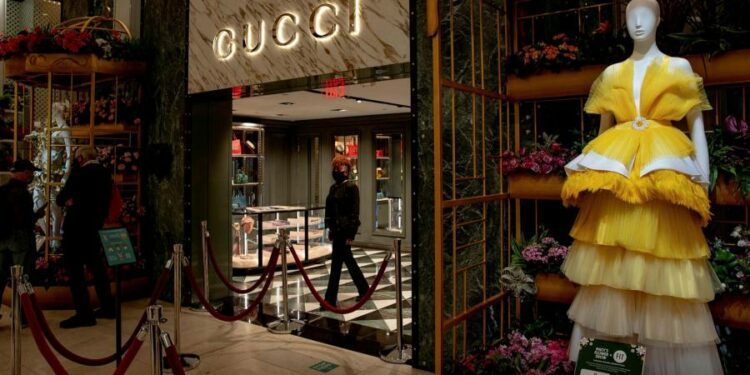European stocks wavered on Thursday, shored up by strong earnings from consumer goods groups, as Kyiv and Moscow blamed each other for clashes in Ukraine’s eastern Donbas region.
The Stoxx Europe 600 index switched between small gains and losses, Germany’s Xetra Dax traded flat and London’s FTSE 100 lost 0.5 per cent.
Futures contracts tracking the US S&P 500 share index fell 0.3 per cent, while those tracking the technology-focused Nasdaq 100 lost 0.4 per cent.
The moves came after the White House on Wednesday denied Russia’s claim of having withdrawn troops from the Ukrainian border.
On Thursday, the Ukrainian army said “Russian occupation forces” had shelled more than 20 separate locations as unconfirmed videos including the sound of live fire appeared on social media. Russia blamed Ukraine for the escalation.
“Everything is unconfirmed and we’re at an impasse until we get more confirmation,” said Cesar Perez Ruiz, chief investment officer at Pictet Wealth Management. “It’s natural to take a bit of profit at this point.”
Russia’s Moex share index dropped 2.2 per cent while the rouble lost 0.5 per cent against the dollar.
Global markets have whipsawed over the past week, as volatility fuelled by expectations of central banks tightening monetary policy sharpened reactions to reports about developments concerning Ukraine. The benchmark US S&P 500 share index has dropped more than 6 per cent so far this year.
The White House on Wednesday called the Kremlin’s claims that it was withdrawing forces from the Ukrainian border “false” and accused Russia of increasing its troop numbers in the region by about 7,000 in recent days. These comments came after Moscow said it was drawing down some troops from border areas.
Gains for luxury and household goods shares provided a buffer for European stocks on Thursday, however. Shares in Reckitt Benckiser rose more than 5 per cent after the maker of Clearasil and Strepsils reported revenue growth that was ahead of analysts’ expectations. Kering gained almost 7 per cent after reporting fourth-quarter sales at its Gucci brand that beat analysts’ forecasts.
Oil markets remained choppy. Brent crude, the international benchmark, fell 1.5 per cent to $93.35 a barrel, having fluctuated all week in response to speculation about how potential western sanctions on Russia would disrupt global fuel supplies.
Minutes from the US Federal Reserve’s policy meeting on Wednesday highlighted its officials’ determination to combat stubbornly high inflation, although some warned about the risks posed to markets and the wider economy by tightening policy too quickly.
Money markets have priced in more than six quarter-point rate rises by the Fed this year after US inflation surged to a four-decade high in January.
The yield on the 10-year Treasury note, which moves inversely to its price, declined by 0.04 percentage points to about 2 per cent but remained close to its highest level since late 2019.
In Asia, Japan’s Topix fell 0.8 per cent. Hong Kong’s Hang Seng trimmed losses from earlier in the day to close 0.3 per cent higher.











